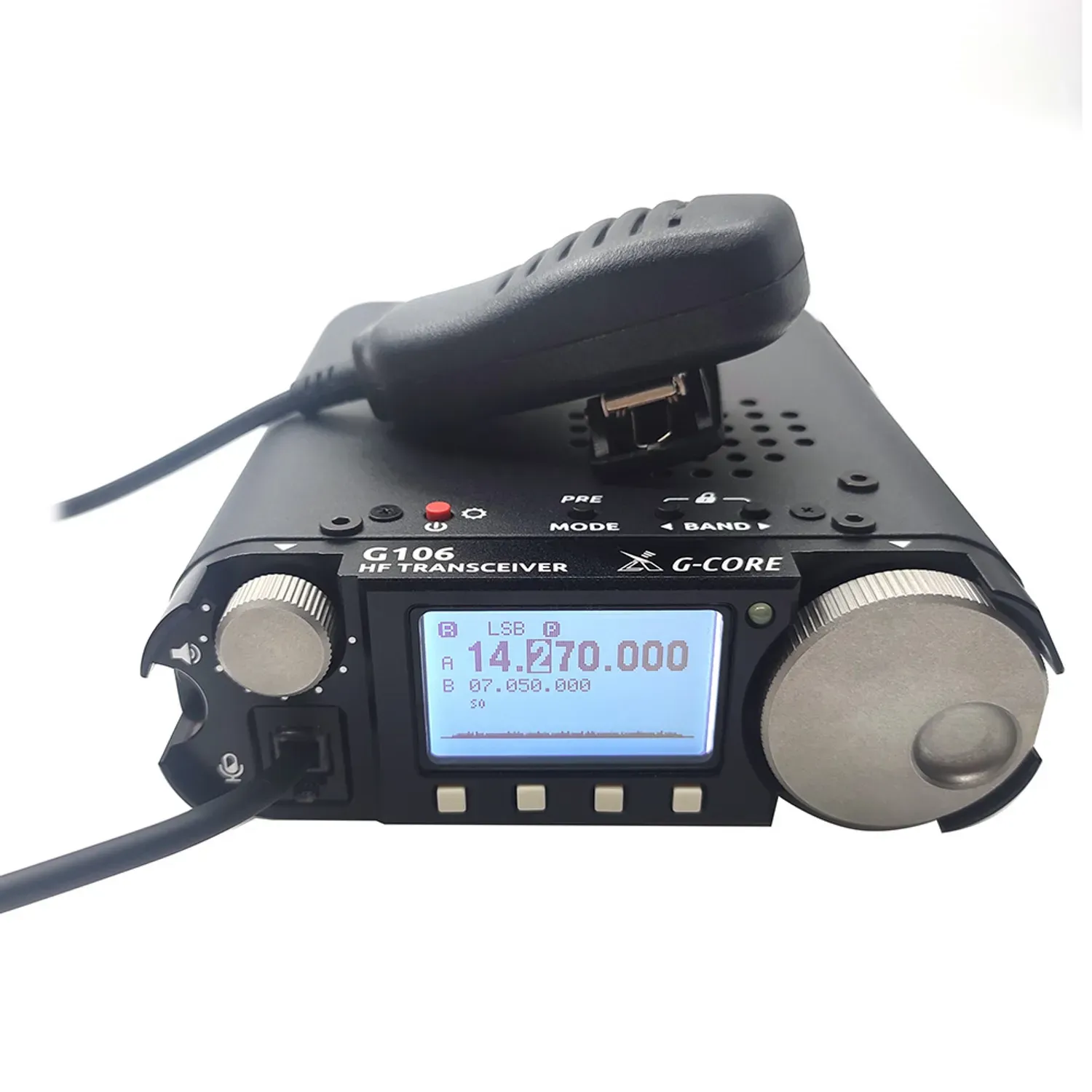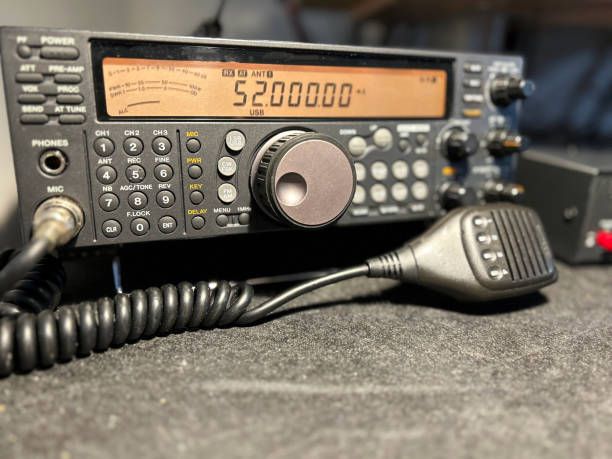
Send Inquiry
Why Does My HF Radio Transceiver Make a Buzzing Noise?
If you're an amateur radio enthusiast or a professional relying on high-frequency (HF) communications, encountering a buzzing noise from your HF radio transceiver can be incredibly frustrating. This persistent hum can interfere with clear communication, causing annoyance and potentially hindering important transmissions. In this comprehensive guide, we'll delve into the reasons behind this buzzing noise and offer practical solutions to eliminate it.
Understanding the HF Radio Transceiver
Before diving into the specifics of the buzzing noise, it's essential to understand what an HF radio transceiver is and how it functions. HF radio transceivers operate within the frequency range of 3 to 30 MHz, making them ideal for long-distance communication. These devices are widely used by amateur radio operators, military personnel, and maritime communication systems due to their ability to propagate signals over vast distances.
The basic components of an HF radio transceiver include the transmitter, receiver, antenna, and power supply. The transmitter sends out radio waves, while the receiver captures incoming signals. A well-functioning transceiver ensures clear and reliable communication, but various factors can disrupt this smooth operation, leading to the dreaded buzzing noise.
Common Causes of Buzzing Noise in HF Radio Transceivers
1. Electrical Interference
One of the most common culprits behind the buzzing noise in HF radio transceivers is electrical interference. Modern households and workplaces are filled with electronic devices that can emit electromagnetic interference (EMI). Common sources include:
- Power lines: Overhead power lines can generate EMI, especially if they are close to your antenna.
- Appliances: Household appliances such as refrigerators, microwaves, and LED lights can produce interference.
- Computers and routers: These devices often emit high-frequency signals that can interfere with your HF transceiver.
- Fluorescent lights: Older fluorescent lighting systems can be a significant source of EMI.
- Switching power supplies: These are found in many modern electronic devices and can create substantial noise.
2. Grounding Issues
Proper grounding is crucial for the optimal performance of an HF radio transceiver. A poor or inadequate grounding system can lead to various issues, including the dreaded buzzing noise. Grounding issues can arise from:
- Inadequate ground connections: Ensure that your transceiver is connected to a good earth ground.
- Corroded connections: Over time, grounding connections can corrode, reducing their effectiveness.
- Nearby metallic objects: Metal objects near your grounding system can disrupt the grounding process.
- Ground loops: These occur when there are multiple ground paths, creating a loop that can pick up and amplify noise.
3. Antenna Problems
Your antenna plays a significant role in the performance of your HF radio transceiver. Antenna-related issues that can cause buzzing noise include:
- Improper installation: Ensure your antenna is correctly installed and tuned to the appropriate frequency range.
- Nearby structures: Buildings, trees, and other structures can reflect signals, causing interference.
- Faulty connections: Check all connections between your antenna and transceiver for any signs of wear or damage.
- Antenna type: Certain types of antennas are more susceptible to picking up noise than others.
4. Power Supply Issues
The power supply is another potential source of buzzing noise. Issues related to the power supply include:
- Unstable voltage: Fluctuations in voltage can cause interference in your transceiver.
- Noise from power adapters: Some power adapters and chargers can generate EMI.
- Battery problems: If you're using a battery-powered transceiver, ensure the battery is in good condition and properly connected.
- AC power lines: Proximity to high-voltage AC power lines can induce noise into your transceiver setup.
5. RF Feedback
Radio frequency (RF) feedback occurs when transmitted signals are picked up by your own antenna, creating a feedback loop. This can result in a buzzing noise and other forms of interference. RF feedback can be caused by:
- Proximity of antenna to transceiver: Ensure there is adequate distance between your antenna and transceiver.
- High output power: Using excessive power output can increase the risk of RF feedback.
- Poorly shielded cables: Ensure all cables are well-shielded to prevent RF leakage.
- Improperly tuned antenna: An improperly tuned antenna can reflect signals back to the transceiver, causing feedback.
Troubleshooting and Solutions
Now that we've identified common causes of buzzing noise in HF radio transceivers, let's explore practical solutions to address these issues.
Minimize Electrical Interference
To reduce electrical interference, take the following steps:
- Identify and eliminate sources: Use an EMI detector to identify sources of interference and either eliminate or move them away from your transceiver.
- Use ferrite beads: Attach ferrite beads to power and signal cables to suppress EMI.
- Shield your transceiver: Place your transceiver in a shielded enclosure or use shielding materials to reduce interference.
- Turn off unnecessary devices: Switch off or unplug electronic devices that are not in use, particularly those known to emit EMI.
Improve Grounding
Enhancing your grounding system can significantly reduce buzzing noise:
- Check and clean connections: Regularly inspect and clean all grounding connections to ensure they are corrosion-free.
- Upgrade your grounding system: Consider installing a dedicated ground rod or improving the existing grounding system.
- Isolate the ground: Ensure that your transceiver's ground is isolated from other electronic devices to prevent ground loops.
- Use a single point ground: This can help in reducing ground loop issues by providing a common grounding point.
Optimize Your Antenna
Proper antenna installation and maintenance can mitigate buzzing noise:
- Position your antenna correctly: Install your antenna away from buildings, trees, and other obstructions.
- Check connections: Regularly inspect and secure all antenna connections.
- Use a balun: A balun can help balance the antenna and reduce interference.
- Select the right antenna type: Consider using a directional antenna if your environment is particularly noisy.
Ensure Stable Power Supply
Maintaining a stable power supply is crucial:
- Use a regulated power supply: A regulated power supply can provide consistent voltage and reduce interference.
- Filter noise: Use power line filters to eliminate noise from the power supply.
- Inspect batteries: If using batteries, regularly check their condition and replace them if necessary.
- Isolate power lines: Keep your transceiver's power lines separate from other household electrical wiring to reduce noise pickup.
Prevent RF Feedback
Preventing RF feedback involves careful setup and monitoring:
- Maintain distance: Ensure there is sufficient distance between your antenna and transceiver.
- Reduce output power: Use the minimum power output necessary for clear communication.
- Use shielded cables: Employ well-shielded cables to prevent RF leakage.
- Properly tune your antenna: Regularly tune your antenna to the desired frequency to ensure optimal performance and minimize reflections.
Advanced Troubleshooting Tips
For those who have tried the basic solutions without success, here are some advanced troubleshooting tips:
Use an Oscilloscope
An oscilloscope can help you visualize the noise and determine its frequency. This can be particularly useful in identifying the source of the interference.
Install an RF Choke
RF chokes can help prevent RF signals from entering unwanted parts of your setup. Installing them on cables leading to and from your transceiver can reduce noise.
Employ a Noise Blanker
Many modern HF transceivers come with a noise blanker feature. This function can help reduce impulsive noise, such as the kind generated by power lines and appliances.
Utilize a Spectrum Analyzer
A spectrum analyzer can help you identify specific frequencies where interference is occurring. This information can be invaluable in pinpointing and addressing the source of the noise.
Conclusion
A buzzing noise in your HF radio transceiver can be a significant annoyance, but understanding the underlying causes and implementing the right solutions can help you eliminate it. By addressing electrical interference, grounding issues, antenna problems, power supply concerns, and RF feedback, you can ensure your HF radio transceiver operates smoothly, providing clear and reliable communication.
Regular maintenance and vigilant monitoring are key to keeping your transceiver in top condition. For those seeking a reliable and high-quality HF transceiver, consider Ruixue's HF Transceiver range. Ruixue is a professional manufacturer and supplier of radio communication equipment, known for their robust and innovative products. With Ruixue's HF Transceiver, you can enjoy uninterrupted communication and make the most of your HF radio transceiver experience. Happy transmitting!


